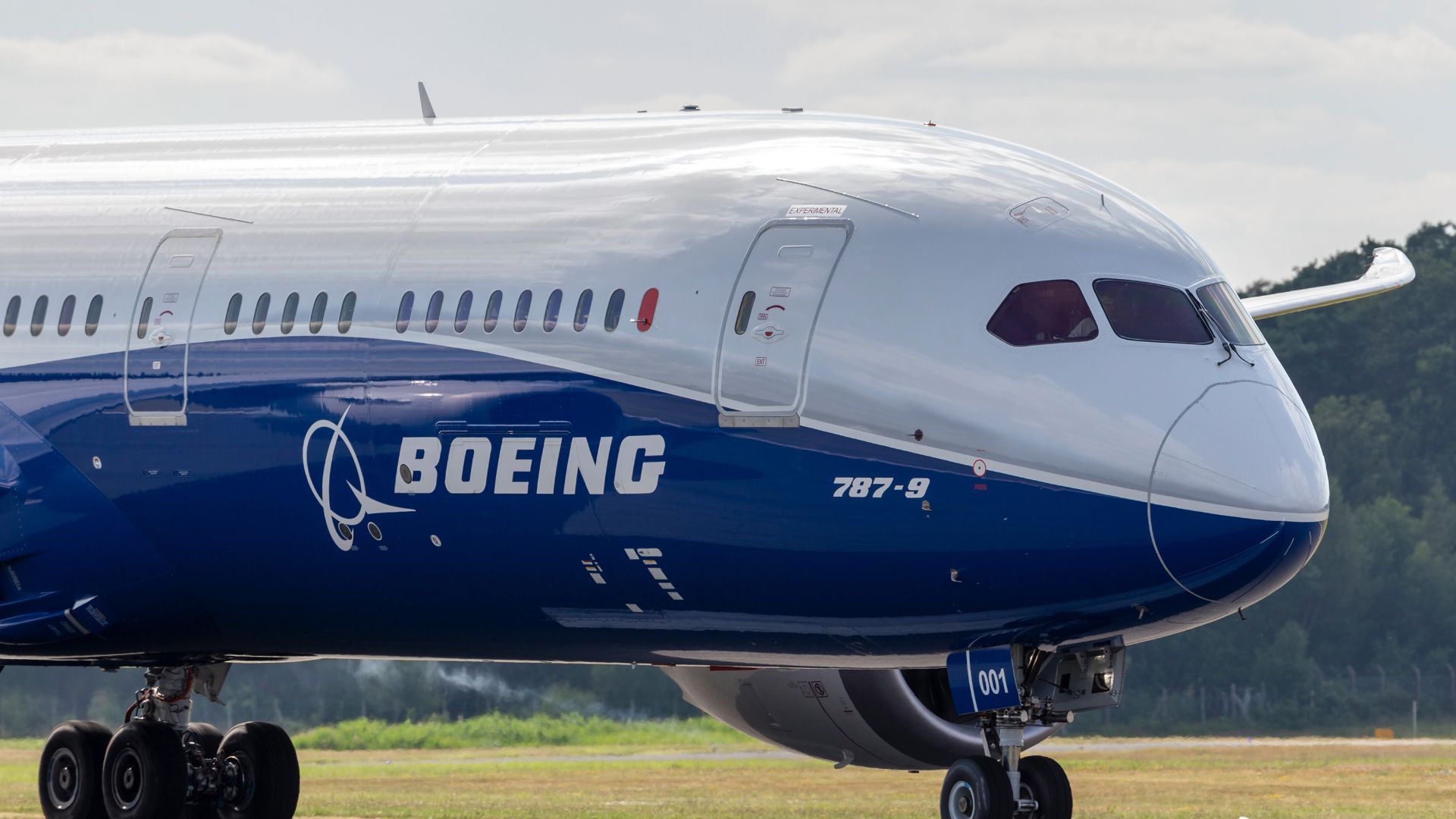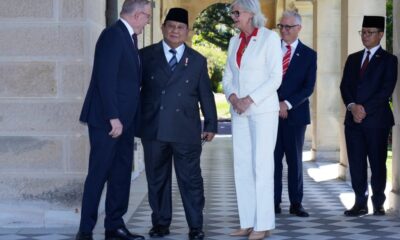World
Bahrain and Indonesia Commit to Major Boeing Aircraft Orders

Boeing has achieved significant momentum in recent months, securing multiple international aircraft orders, including pivotal commitments from Bahrain and Indonesia. These announcements took place during high-level meetings in Washington, D.C., where officials from both nations confirmed plans to acquire a substantial number of aircraft as part of broader bilateral investment discussions.
Bahrain’s $17 Billion Investment Includes Boeing Orders
Bahrain has committed to purchasing 12 Boeing aircraft as part of a comprehensive investment package valued at approximately $17 billion. This deal was announced during Crown Prince Salman bin Hamad Al Khalifa‘s visit to the United States. The aircraft order, estimated at around $7 billion, includes an option for an additional six jets. This initiative aligns with Gulf Air’s strategy to renew and expand its fleet, which is reportedly focusing on the Boeing 787 Dreamliner.
The agreement also encompasses the purchase of 40 General Electric engines, indicating a potential shift in Gulf Air’s widebody fleet configuration. Previously, the airline operated Rolls-Royce-powered Dreamliners but is now evaluating a transition to GE’s GEnx engines due to ongoing technical issues with the Trent 1000 program from Rolls-Royce. The White House stated that this latest deal is expected to support up to 30,000 jobs in the United States. This announcement coincides with Gulf Air’s confirmation of a new nonstop service to New York, set to commence on October 1, 2025, using the 787.
Indonesia’s Commitment to 50 Boeing Jets Amid Economic Talks
In a parallel development, Indonesia has pledged to purchase 50 Boeing aircraft, a commitment made during President Prabowo Subianto‘s visit to Washington. This agreement, which emerged from direct negotiations with U.S. President Donald Trump, is part of broader economic discussions aimed at alleviating tariff threats that had previously jeopardized Indonesia’s exports.
While specific details regarding the purchase remain pending, President Trump indicated that the agreement includes multiple widebody jets, with many likely being the Boeing 777. It is widely believed that Garuda Indonesia, the state-owned airline, is the primary customer behind this deal. Garuda has a long-standing, albeit financially troubled, relationship with Boeing, having previously ordered 50 Boeing 737 MAX jets before halting deliveries after the 2018 Lion Air crash. Reports suggest that the new deal may encompass a mix of MAX, 787, and 777 models.
However, financing details for the new order are unclear, as Garuda operates a limited widebody fleet and has struggled to meet past payment obligations. The airline is currently recovering from a failed $10 billion debt restructuring. According to Bloomberg, any new agreement may be structured to provide financing flexibility, potentially with support from Indonesia’s sovereign wealth fund, Danantara.
If finalized, this order would mark a significant advancement for Boeing in Southeast Asia, where competition against its European rival Airbus remains fierce. Nonetheless, uncertainties about Garuda’s capacity to fulfill the agreement, including questions about the actual number of aircraft it can sustain, may influence the deal’s progression.
Boeing’s recent successes are closely linked to high-level diplomatic engagements. The commitments from Bahrain and Indonesia are part of a series of substantial aircraft deals the manufacturer has secured, often coinciding with President Trump’s overseas visits. As of now, Boeing’s order and delivery data reveals that the company has secured 668 gross orders in 2025, a significant portion of which involves the popular 737 MAX. The widebody segment is also gaining traction, with more than 300 new orders logged in May alone, largely driven by a landmark deal with Qatar Airways for 160 aircraft, consisting of both 777X and 787 models, along with options for an additional 50 units.
-

 Politics4 weeks ago
Politics4 weeks agoSecwepemc First Nation Seeks Aboriginal Title Over Kamloops Area
-

 World5 months ago
World5 months agoScientists Unearth Ancient Antarctic Ice to Unlock Climate Secrets
-

 Entertainment5 months ago
Entertainment5 months agoTrump and McCormick to Announce $70 Billion Energy Investments
-

 Science5 months ago
Science5 months agoFour Astronauts Return to Earth After International Space Station Mission
-

 Lifestyle5 months ago
Lifestyle5 months agoTransLink Launches Food Truck Program to Boost Revenue in Vancouver
-

 Technology3 months ago
Technology3 months agoApple Notes Enhances Functionality with Markdown Support in macOS 26
-

 Lifestyle3 months ago
Lifestyle3 months agoManitoba’s Burger Champion Shines Again Amid Dining Innovations
-

 Top Stories2 months ago
Top Stories2 months agoUrgent Update: Fatal Crash on Highway 99 Claims Life of Pitt Meadows Man
-

 Politics4 months ago
Politics4 months agoUkrainian Tennis Star Elina Svitolina Faces Death Threats Online
-

 Sports5 months ago
Sports5 months agoSearch Underway for Missing Hunter Amid Hokkaido Bear Emergency
-

 Politics5 months ago
Politics5 months agoCarney Engages First Nations Leaders at Development Law Summit
-

 Technology5 months ago
Technology5 months agoFrosthaven Launches Early Access on July 31, 2025





















